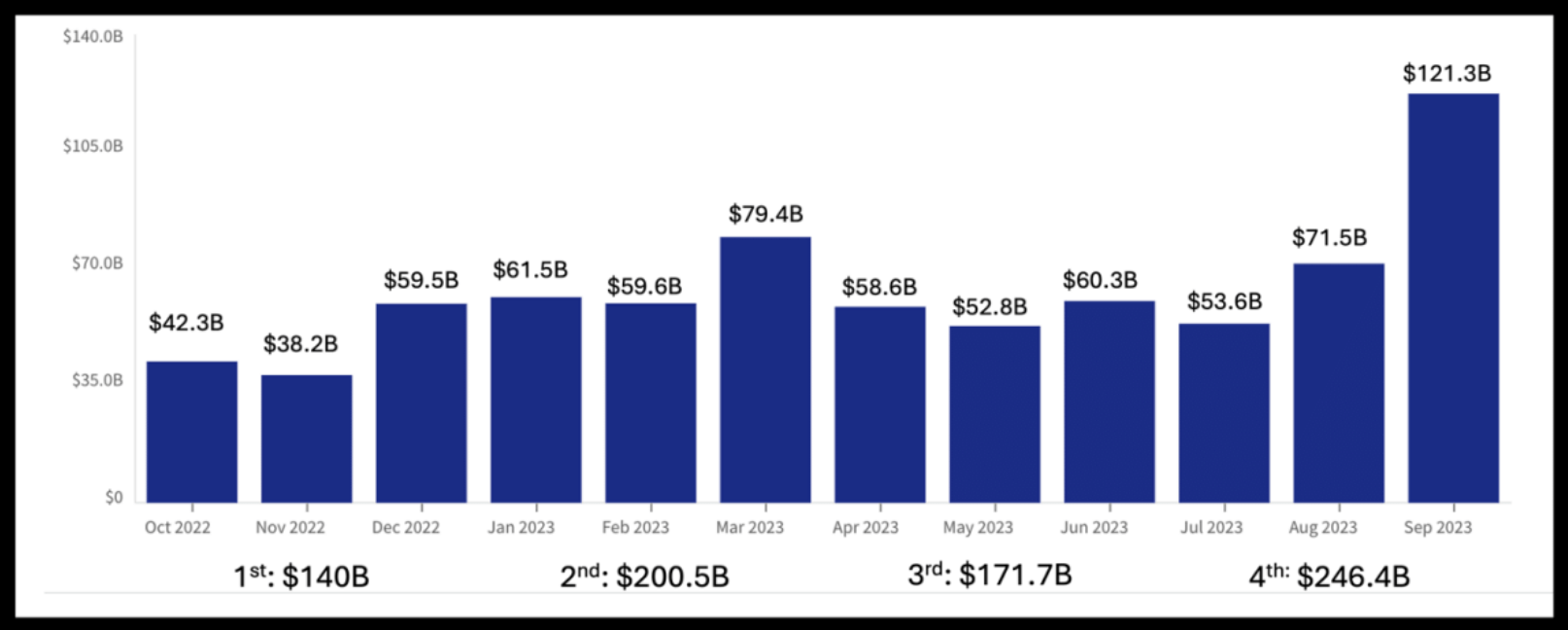The federal fiscal year begins on October 1st and ends on September 30th. The fourth quarter spans July, August, and September.
During fiscal year 2023, $758.6 billion was awarded to businesses, including federal contracts, with $246.4 billion occurring in the fourth quarter. This represents 32.4% of all spending. Ideally, each quarter should account for 25% of the annual spending. However, the fourth quarter presents the greatest opportunity to government contracts. The question is, are you ready to take advantage of the fourth quarter and secure your share of this spending?
Every year I teach large and small businesses well over one hundred classes on government contracts. During these classes, I often review marketing materials that businesses plan to present to government procurement officers. There are some widespread mistakes I see in their federal and state government-focused capability statements, DSBS narratives, and websites. Here are the two most common mistakes:
Quite naturally on a team of majority men, I was volun-told to write the article for Women’s History Month. I am certain any of the men could have written a compelling article for the month, but I wanted the privilege to address the intersection of Women’s History and Government Contracting.
As the new year unfolds, it's a perfect time to be intentional and design your business to be more successful in the government contracting marketplace. This article will guide you through the crucial steps of goal setting, planning, and implementing the best strategies to succeed in the B2G market.
When it comes to government contracting, you want to be on top of your game, and that means having a killer capture plan and implementing advanced strategies that are rarely used. In this article, we're going to walk you through the steps for developing a short-term contracting acquisition plan, expanding your business with some hidden methodologies, and then implementing a long-term plan with advanced techniques.
The government market is a vast and complex landscape, offering lucrative opportunities for
businesses of all sizes. However, winning government contracts is not as straightforward as
submitting a proposal and hoping for the best.
Juneteenth finds its roots in the aftermath of the American Civil War. On June 19, 1865, Union General Gordon Granger arrived in Galveston, Texas, and proclaimed the end of slavery, two and a half years after the signing of the Emancipation Proclamation. This delay in emancipation reaching Texas is attributed to the limited presence of Union troops and the resistance of slaveholders in the region. The news of freedom was met with joy and jubilation by the African American community, and the day became a symbol of hope and progress.
Does your client base primarily consist of companies in the private sector? Are you considering expanding your reach into the public sector with a focus on securing government contracts?
Working with the government can be a rewarding opportunity. If you invest the time to learn the "ins & outs" of what it takes to be successful, it will be worth it. Many articles highlight the benefits of bidding on government contracts and may make it look easy. However, only after being fully prepared will the process become less confusing, allowing you to operate with a more straightforward approach.
You have decided government contracting will be one of your revenue streams. That is a great choice… if you can achieve sustainability. Many companies win a few contracts but never figure out how to win contracts consistently and, more importantly, profitably.
"Follow the money" is a catchphrase popularized by the 1976 docudrama film All the President's Men, suggesting that political corruption can be exposed by tracing financial transactions. While this term gained prominence in the 1970s, the underlying principle has been around for centuries. The Latin phrase Cui bono?, meaning "to whom is it a benefit?", encapsulates the idea of understanding who gains from financial actions.
Join the GCA Family
Only 22% of federal contracting dollars are awarded to small businesses. Our goal is to be an agent of change by helping businesses owned by women, minorities, and veterans to get their fair share of the opportunities in the government market.











